At Mendix, we always aim to provide our customers a future-proof platform for which a significant part is determined by underlying technology.
We believe native mobile apps and progressive web apps (PWAs) are the future for mobile and deliver a best-of-breed approach for building AppStore-based and browser-based mobile apps. For more information see this Mendix World session: Establishing Your Mobile Architecture Strategy.
We do not consider hybrid mobile (which is based on Cordova) as future-proof technology anymore. Therefore, we would like to inform you that Mendix will deprecate hybrid mobile with Mendix 9 (planned release date March 2021).
What This Means for You
- Hybrid mobile apps created before Mendix 9 are still supported in Mendix 9.
- With Mendix 9 and Mendix 8.18 (LTS), it will not be possible anymore to create new hybrid mobile apps.
- No new features will be created for hybrid mobile apps, as the focus of Mendix is on native mobile and progressive web apps.
- With Mendix 10, hybrid mobile apps will not be supported anymore. When Mendix 12 is released, support for Mendix 9 will we dropped and therefore also the support for hybrid mobile. Note that between majors there is at least a year difference which means Mendix 9 is still supported for several years.
Deciding Factors
Overall, the market is moving away from hybrid mobile technology. For example, Adobe stopped supporting PhoneGap an PhoneGap Build on October 1st 2020. Hybrid apps should be built locally and cannot be built anymore with the Mendix Cloud platform and via PhoneGap Build. This is because of the shut down of PhoneGap Build which is leveraged by the Mendix platform.
The popularity and usage of Cordova compared to for example React-Native is very low as can be seen on GitHub:



See it too in this Stack Overflow Developer 2020 survey:
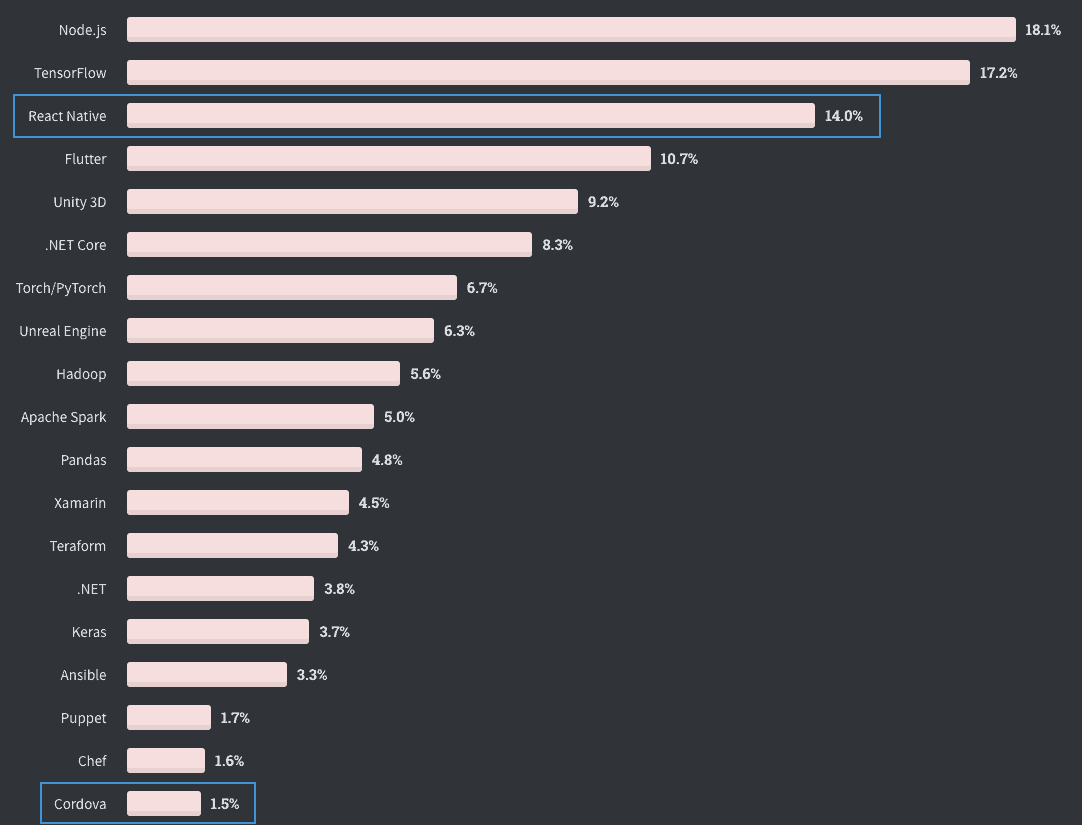
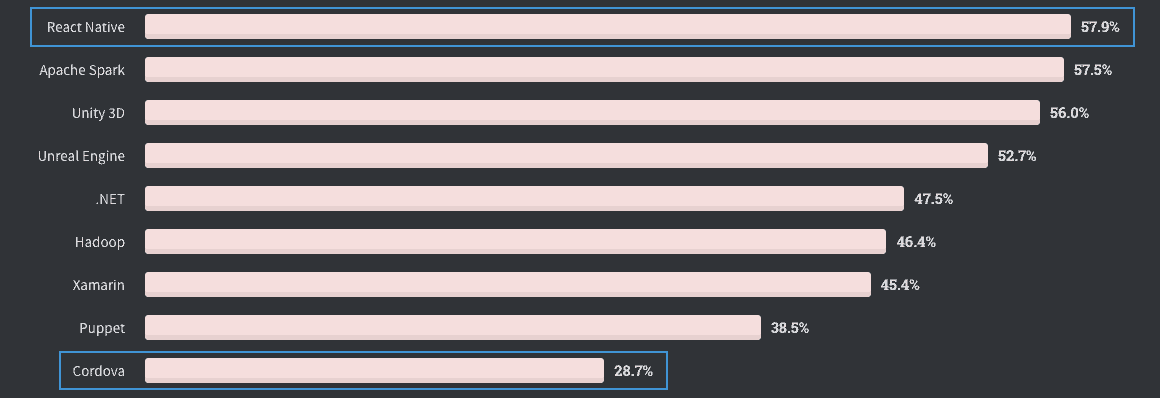
Cordova is mostly in a maintenance mode right now, and the community around Cordova is not very active anymore. This can (and will likely) result in issues like, for example, when a new iOS or Android version is released or new form factors are introduced. Now, compare Cordova’s activity and commits on Github to React Native’s.

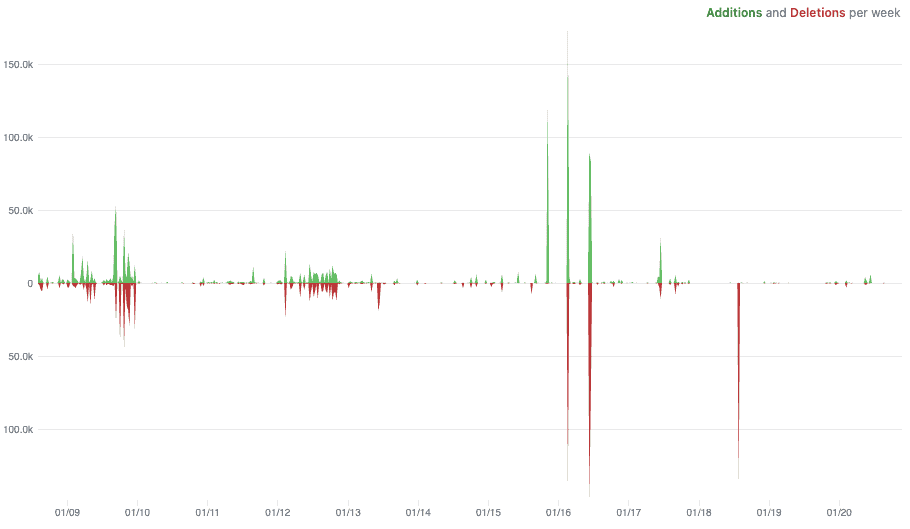

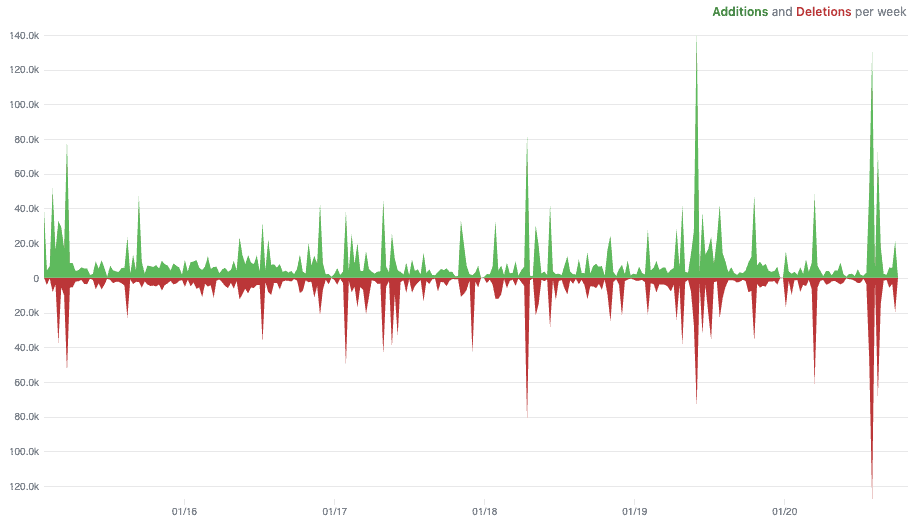
Also, we’ve experienced that Apple is becoming more restrictive and does not accept all hybrid apps anymore, as Apple considers them web apps. This already happened with multiple customers.
Next Steps
We suggest that you start defining a migration strategy to migrate your hybrid mobile app(s) to native mobile or PWAs.
In general, PWA would offer the shortest migration path because of full re-use of existing theme/UI because both are web-based. Basically, PWA can be considered as web apps with additional features, and as Hybrid apps are also web-based (and often tested in the browser), this makes migration simpler because of the large re-use part.
However, there are limitations to take into consideration when building a PWA.
- Full offline support only on Chrome (excluding iOS)/Edge (Chromium) browser. Wider browser support planned for H2 2021
- No web push notifications on iOS
- Only basic device features available: e.g. camera, location
- Similar user experience as Hybrid Mobile
Next to that, Native mobile apps are superior with respect to UX, device capabilities, offline and security, so take that into consideration when choosing your mobile architecture.
Here’s a flow chart to help you choose the right technology for you:
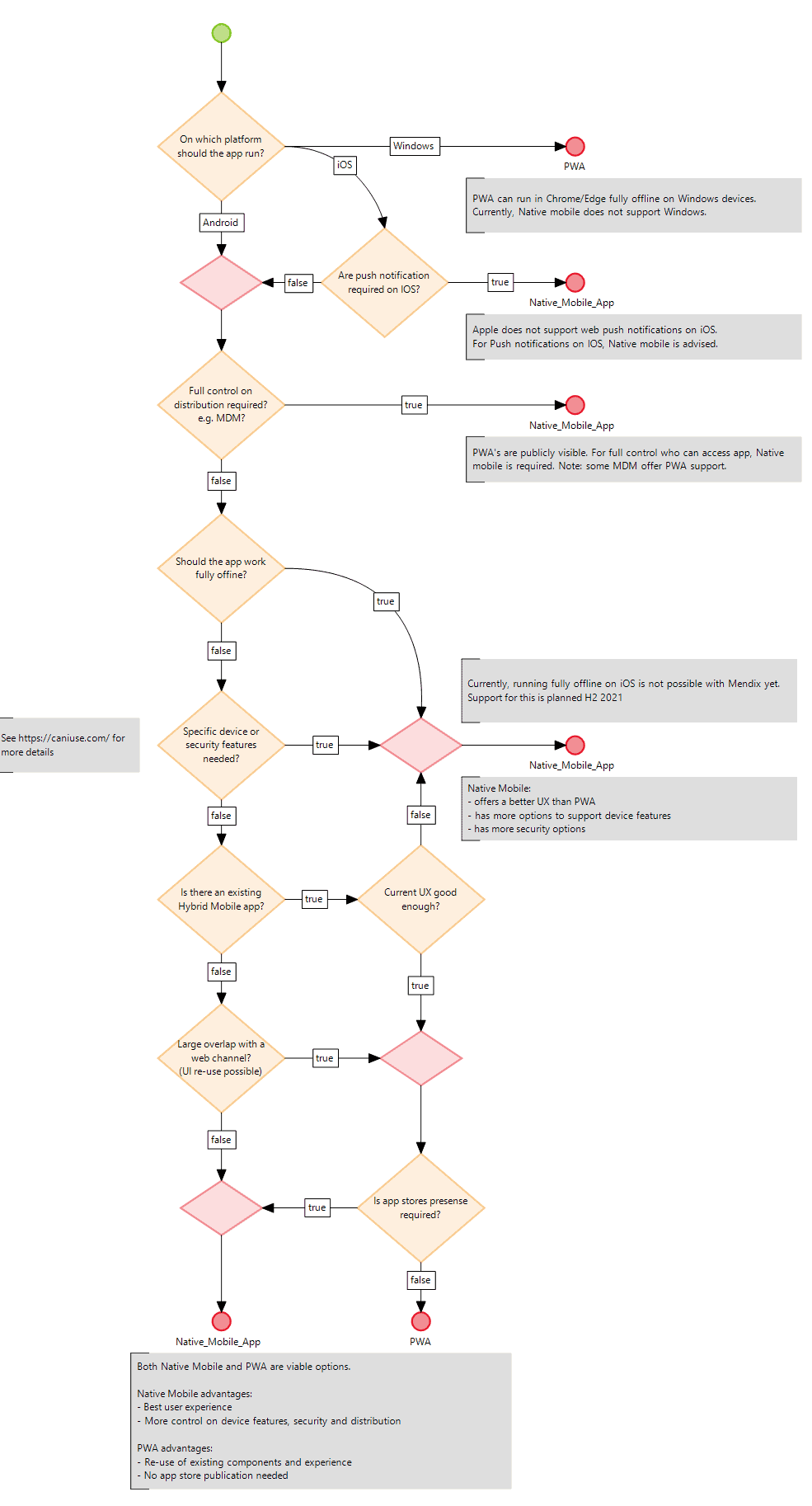
More information on Progressive Web Apps
During Mendix World 2020 Mendix announced support for PWAs. Progressive web apps can be seen as an evolution of traditional web apps. Overall PWAs tend to behave more like true native apps, and the popularity is increasing. A difference and possible advantage of PWA compared to Hybrid/Native mobile is that they do not need to be distributed via an app store but can be accessed directly via the browser.
Progressive web apps have three main characteristics.
- Installable: PWAs offer the option to add the app to the user’s home screen, and start a full screen app, making it feel more like a true native app.
- Reliable: using service workers PWA have the option to work (partially) offline. Mendix PWA can work partially offline (resources like styling, pages, and images are cached) or fully offline-first (like hybrid offline and native mobile).
- Capable: PWAs can leverage several device capabilities like the camera and location, but also offer support for web push notifications. Note that support for features depend and differ per browser.
Background on hybrid mobile apps
Hybrid mobile was created as a more accessible alternative for building mobile apps by using web technology instead of native languages like Objective-C & Java, while still providing device capabilities & offline support which were not/limited possible with browsers.
The most common technology for hybrid mobile apps is Cordova, but other variants (on top of Cordova) exist, like PhoneGap and Ionic. With the rise of PWA, which also can leverage device capabilities directly via the browser, we see the need for hybrid in general disappearing.
Within Mendix, hybrid mobile apps are apps that leverage one or more of the following navigation profiles:
- Hybrid phone online
- Hybrid phone offline
- Hybrid tablet online
- Hybrid tablet offline
Contact Us for Assistance
Contact support, your partner manager or your customer success manager if you have additional questions or need advice. We are happy to help.

